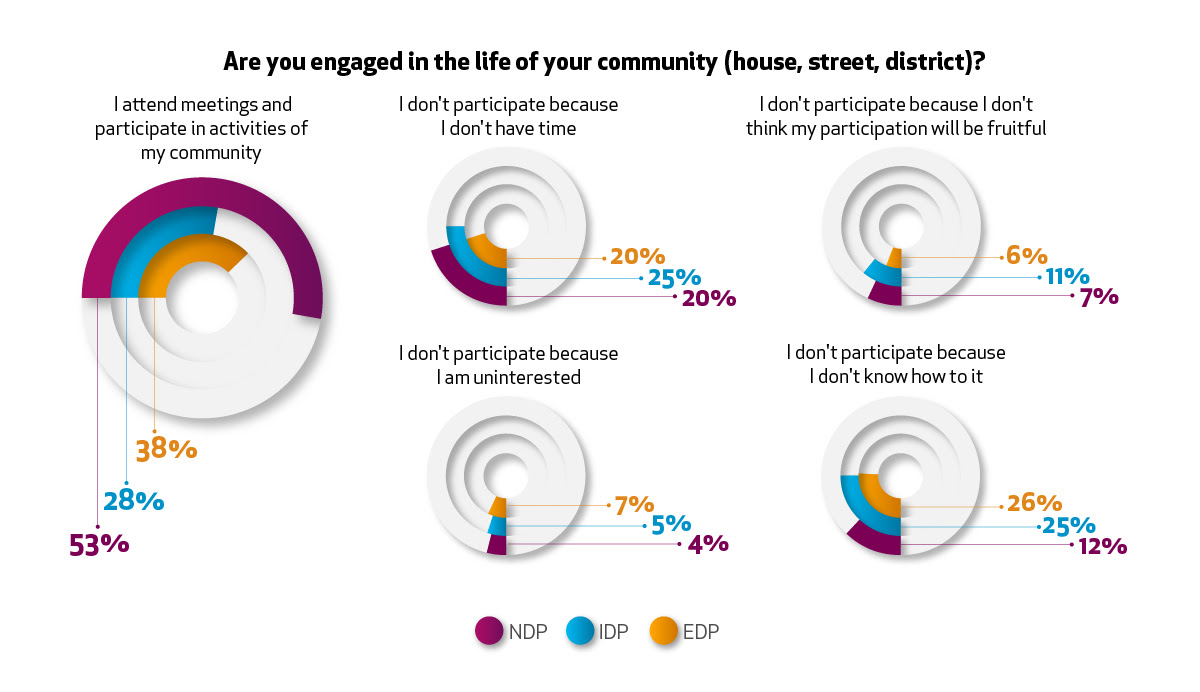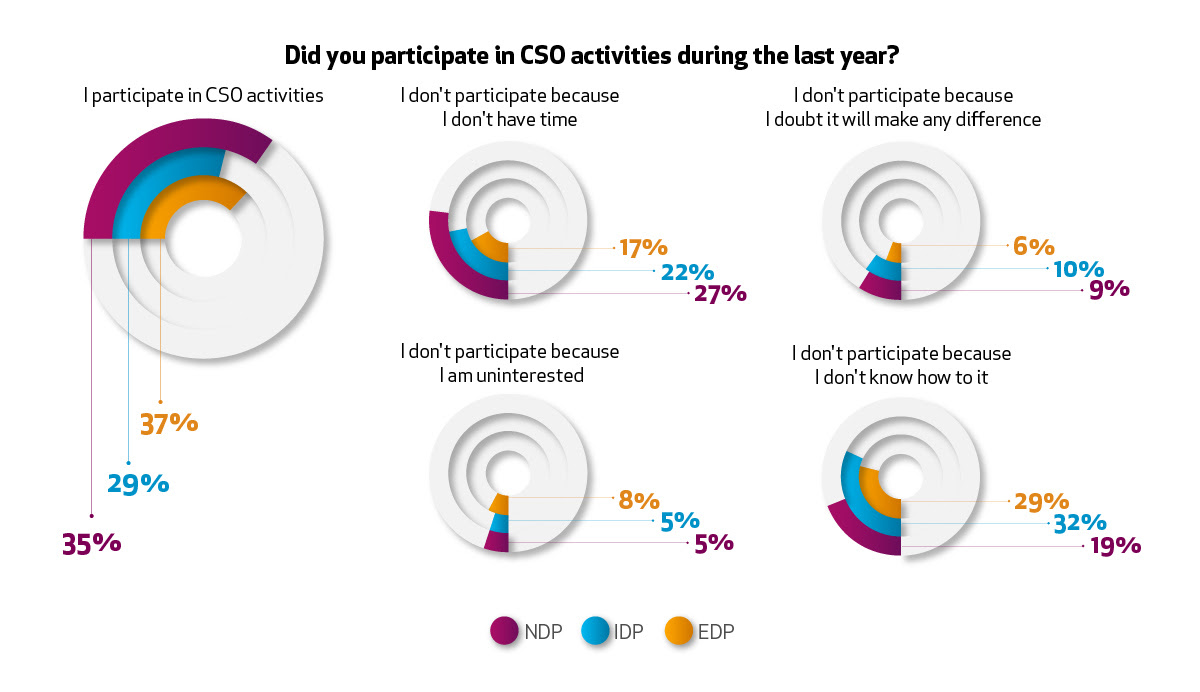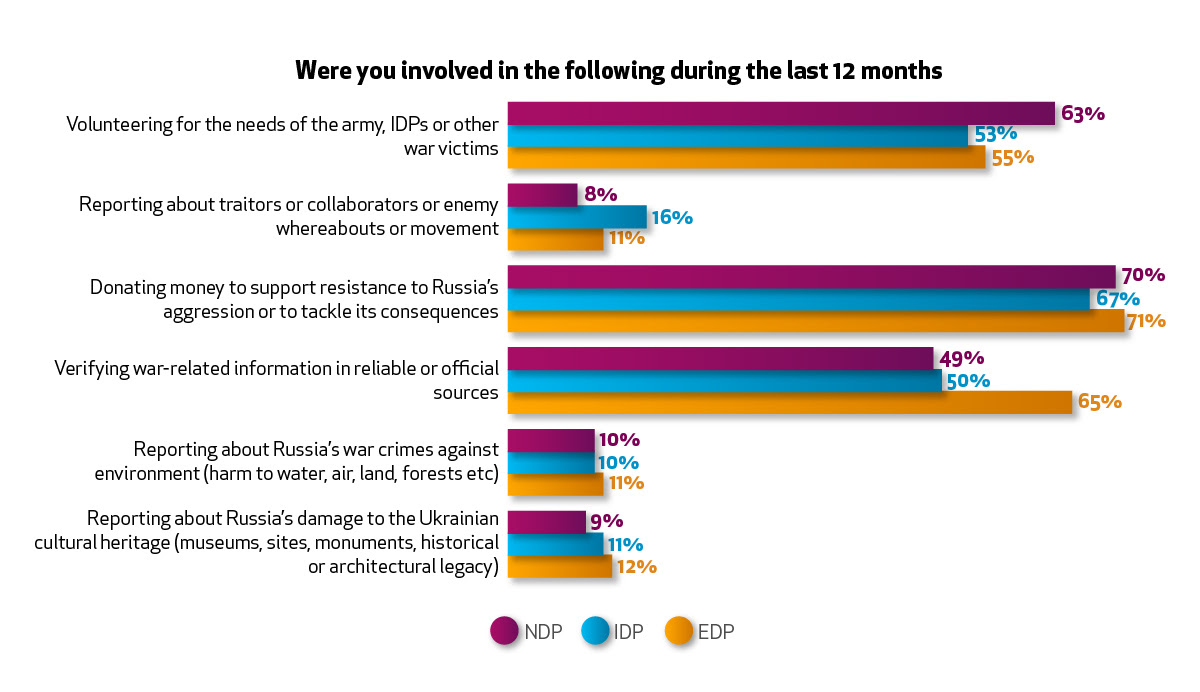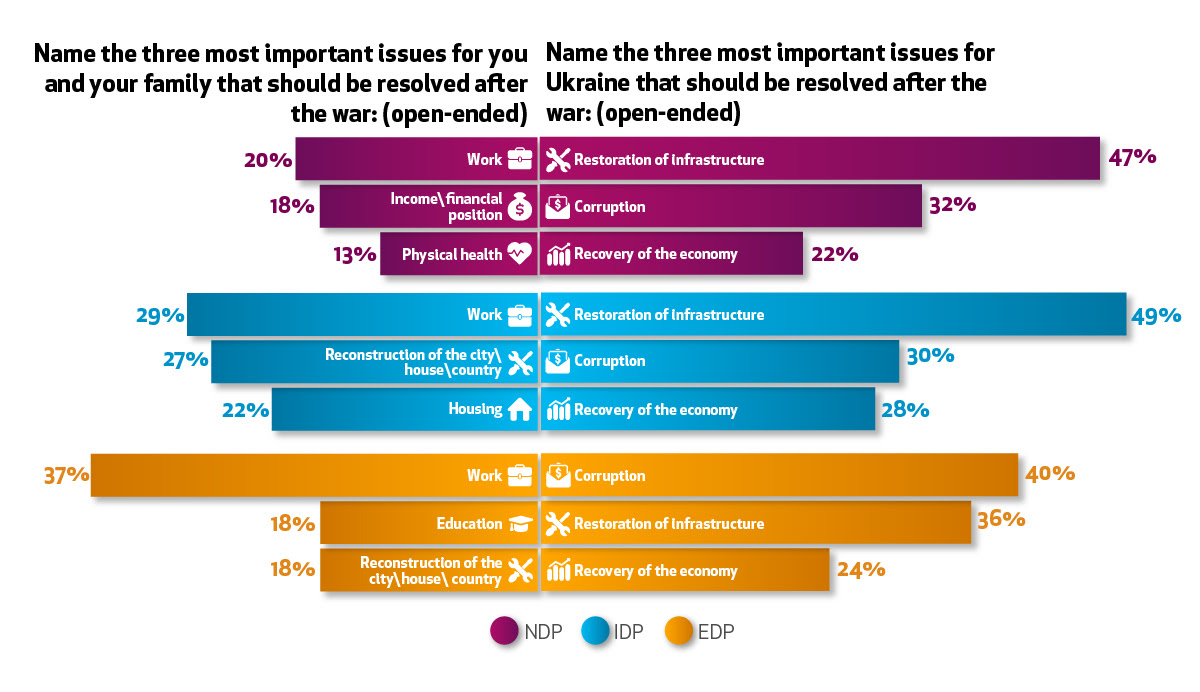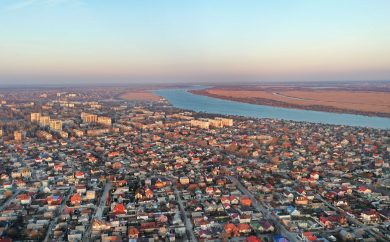We are pleased to announce the release of the spring-summer 2023 Civic Engagement Poll (CEP), conducted under USAID/ENGAGE since 2018. For the first time, we have explored how war affects awareness and participation in civil society activities, as well as the understanding and perception of reforms. We surveyed three distinct population categories: adult non-displaced persons (NDPs) residing in Ukraine; externally displaced persons (EDPs) forced to leave Ukraine due to the war; and internally displaced persons (IDPs).
Delve deeper into the survey to learn more insights! We believe this data will not only broaden your knowledge but also empower you to work together towards fostering a more engaged and resilient society. Stay tuned for the upcoming issue for more insights!
****
- Ukrainians from all three surveyed groups– (non-displaced persons (NDPs), externally displaced persons (EDPs), and internally displaced persons (IDPs) demonstrate a higher tendency to engage with their communities than with civil society organizations (CSOs). Specifically, 53% of non-displaced Ukrainians reported active involvement in their community’s life. Among internally displaced citizens, this figure is 38%, and among externally displaced abroad due to the war – 28%.
****
- Among Ukrainians, those residing abroad demonstrate the highest propensity to join CSOs at 37%. They are closely followed by non-displaced Ukrainians at 35%, with internally displaced persons trailing at 29%. A primary barrier to citizens’ participation in CSOs is a lack of awareness of how to join their activities. Intriguingly, internally displaced Ukrainians also express the highest level of trust in civil society organizations (60%), while externally displaced individuals trust them the least (37%).
****
- Across all three categories, Ukrainians are actively participating in civic resistance against the aggressor and remain informed about opportunities for such engagement. A significant majority of Ukrainians have made financial donations to counter Russia’s aggression or to address its aftermath: 71% of EDPs, 70% of non-displaced Ukrainians and 67% of internally displaced persons. Furthermore, many have volunteered their time and efforts, with 63% of NDPs, 55% of EDPs and 53% of IDPs stepping up in this manner.
****
- Ukrainians’ postwar priorities vary between national concerns and personal or family interests. Nationally, the foremost issues to tackle following the war are fighting corruption, and rebuilding infrastructure and the economy. On a personal or familial level, employment emerged as a top priority for respondents across all three categories: 20% of NDPs, 29% of IDPs, and 37% of EDPs. This was followed by concerns about their financial situation (18%) and health (13%).
****

